During a relatively short existence of the digital industry, mankind invented many kinds of storage media. Up till now, there were various types of information storage banks, such as tapes, magnetic tapes, CDs, DVDs, hard disks, etc.
Then our company asked a philosophical question: According to the manufacturer's warranty, which storage medium stores data the longest? This article will not only answer this question but will also review and recall many of the sample storage media. It will also determine how long these storage mediums can retain critical data the longest, according to the manufacturer's warranty period? We will briefly recall many of them, since some readers have not seen them and find out how long they can keep important information.
Magnetic tape
Magnetic tape information carriers are flexible tapes with thin magnetic layers on them. All information on the tape is recorded by means of magnetic recording. Recorders that play back information were called reel-to-reel tape recorders, commonly known as "babinik".
Magnetic tape can lose data due to the loss of magnetic charge on it. For example, if it was stored near a magnetic field. It is also possible for magnetic plating to delaminate, which could result in the loss of information. Magnetic plating can lead to such a problem if it is used frequently. Manufacturers claim that the tape can last up to 30 years. The only problem is that magnetic tapes can only last as long as this if they are stored in ideal environmental conditions. It is more realistic to expect magnetic tape to last between 10 and 20 years. That's assuming you don't listen to magnetic tape very often.
Audio and video tapes
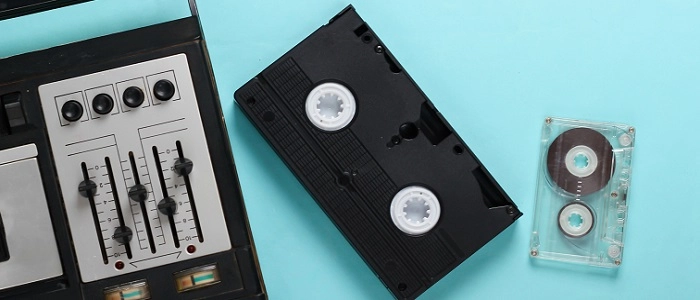
It is the same magnetic tape, but it is packaged in plastic for better protection from external mechanical damage. Since cassettes and tapes are very similar, cassettes have the same lifespan as magnetic tapes. Due to overuse, some wear out quickly. Some last for more than 30 years (I'm sure some of my sister's Michael Jackson tapes from the '80s still work). Many of the factors we mentioned affect longevity. The lifespan of a cassette tape is estimated to be 10-20 years.
Nintendo Entertainment System Video Game Cartridge
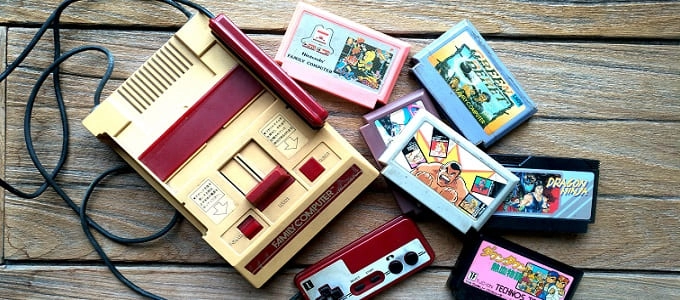
It was not possible to save your game progress in the old NES games because there was no memory. Instead, you had to earn access codes to advance to different levels as you progressed through the game. Eventually, video game cartridges were equipped with batteries that powered the memory, which was responsible for storing the progress of your game.
Memory cartridges for NES systems are likely to fail as they age, so people with older systems are likely to have trouble saving games. Since the memory relies on batteries, much of the game progress can be lost due to battery depletion. The same is true for Super Nintendo and Gameboy cartridges. The cartridges have a lifespan of 10-20 years. There are, however, older examples.
Floppy disk
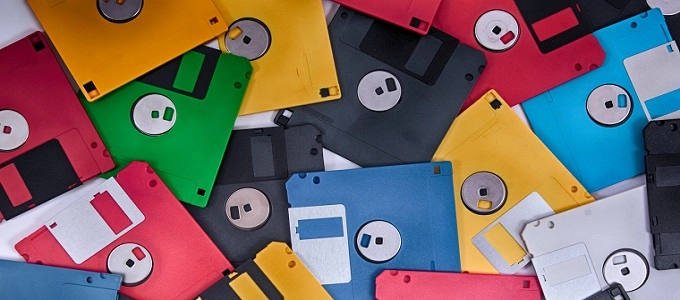
As a whole, this drive is very interesting. We see floppy disks almost every day, but many people are not aware of that. The funny fact is that save buttons are present in various programs, such as Word. They can be found in the upper left corner.
Since floppy disks use magnetic storage, magnetism eventually wears out about the same time as the tape (10 to 20 years). Even though floppy disks were largely replaced by CDs and hard disks before magnetic deterioration became an issue, some of them can last quite a long time.
CDs and DVDs
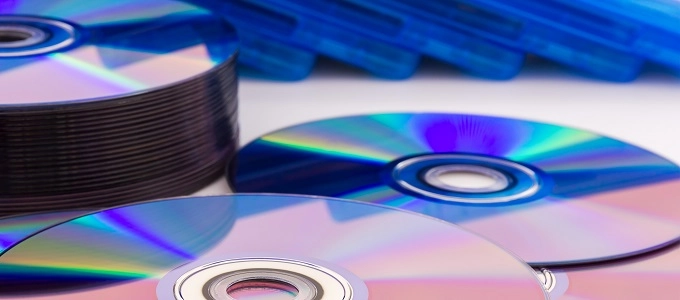
According to the U.S. National Archives, CDs and DVDs have a very similar lifespan. Generally, unrecorded (blank) CDs and DVDs have a shelf life of 5 to 10 years. Recorded CDs and DVDs have an estimated lifespan of 2 to 5 years. However, based on the manufacturer's claims, 10 to 25 years or even more is not out of the ordinary. It's a short period and there's a risk of data loss. These numbers also depend on environmental factors and how often you use the drive.
Any optical media is extremely susceptible to damage because the readable surface is poorly protected. Just think about it, how many of your CDs get scratched with regular use? Those who have used them have all experienced it.
Blu-ray Disc (BD)
It is important to note that the spelling "blu" rather than "blue" is intentional. Blue-ray is also an optical medium used for recording of data with increased density of digital data storage.
The Verbatim Blu-ray recordable discs come with a lifetime warranty, but I couldn't find any reliable information about how long they will store data (or how long other brands of Blu-ray discs will last). In ideal environmental conditions, they are supposed to last longer than CDs and DVDs because this method of writing the data results in more reliable storage. Yet even though they last a bit longer, they are still optical media, which means they too are prone to scratches, high temperatures and sunlight damage.
M-disk
This is an optical data storage medium. It is distinguished from other discs by a special coating. The exact composition of the M-Disc working layer is unknown, because it is a trade secret. Yet the patent states that the layer consists of a glassy carbon. Manufacturers claim M-Disc can last up to 1,000 years, even when scratched and subjected to high temperatures.
Although M-Disc is a new format, it can be used with any standard DVD drive to read information. However the data is engraved on advanced metals, a special M-Disc drive is required to write it. Furthermore, since this technology is new, it only has a theoretical lifespan of 1,000 years. It will take time to see how long these advanced drives will actually last, although they have some impressive research backing them up.
Hard drives
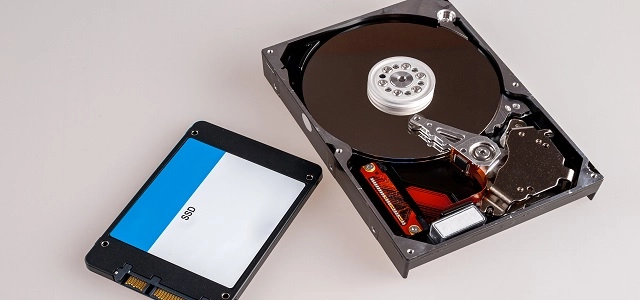
Most hard disk drives (HDDs) have a lifespan of 3 to 5 years before any component fails completely. Failure of one part does not always indicate failure of the whole drive. Usually, a hard drive lasts from 3 to 5 years - no matter if we're talking about an internal drive for a server, a desktop computer, or an external hard drive. Some of the moving parts inside might eventually stop working. Still as with any media that stores important data, using high quality hardware will increase its lifespan.
Flash drive
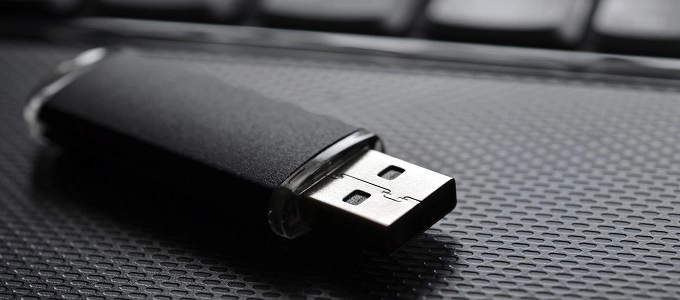
Flash memory comes in three different common media: flash drives, SD cards, and solid-state drives (SSDs).
Manufacturers claim that flash drives can last up to 10 years. Flash memory usually deteriorates not because of its age, but because of the number of write cycles. This means: the more you delete and write new information, the faster the memory in the device will deteriorate.
Since all of these devices use flash memory, they will all degrade in the same way. There is one thing for certain - the best equipment always pays off. Since there are so many manufacturers, the lifespan may vary slightly from one device to another, but flash memory devices that are designed to receive a greater number of write cycles tend to last longer. When it comes to flash drives and SD cards, you're most likely to lose or destroy them in the washing machine before anything else happens.






















































